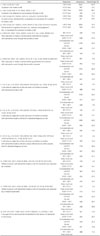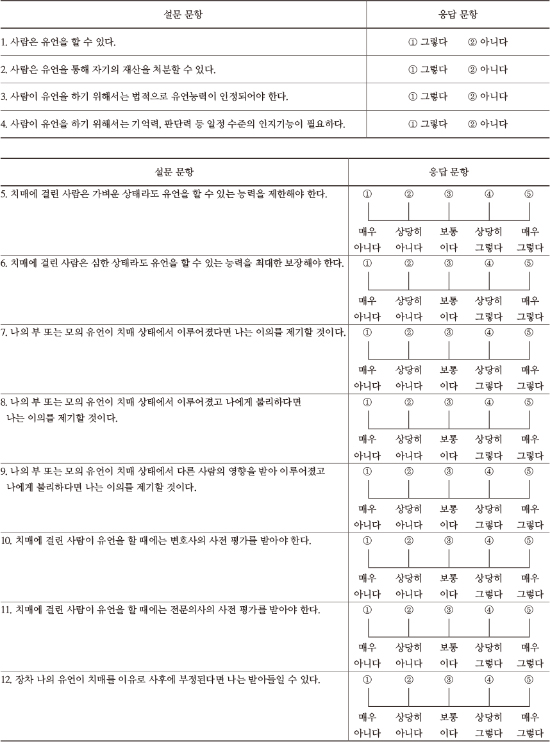1. American Psychiatric Association. Diagnostic and Statistical Manual of Mental Disorders (DSM-5). 5th ed. Arlington, VA: American Psychiatric Association;2013.
2. Sadock BJ, Sadock VA, Ruiz P. Kaplan & Sadock's synopsis of psychiatry behavioral sciences/clinical psychiatry. 11th ed. Philadelphia, PA: Wolters Kluwer;2015. p. 704–715.
3. Kosis.kr [homepage on the Internet]. Population projections: general and processed statistics, statistics on population. cited 2013 May 31. Available from:
http://www.kosis.kr.
4. Youn JC, Lee DY, Kim KW, Woo JI. Epidemiology of dementia. Psychiatry Investig. 2005; 2:28–39.
5. Prince M, Bryce R, Albanese E, Wimo A, Ribeiro W, Ferri CP. The global prevalence of dementia: a systematic review and metaanalysis. Alzheimers Dement. 2013; 9:63–75.

6. Kim KW, Park JH, Kim MH, Kim MD, Kim BJ, Kim SK, et al. A nationwide survey on the prevalence of dementia and mild cognitive impairment in South Korea. J Alzheimers Dis. 2011; 23:281–291.

7. Kim YJ, Han JW, So YS, Seo JY, Kim KY, Kim KW. Prevalence and trends of dementia in Korea: a systematic review and meta-analysis. J Korean Med Sci. 2014; 29:903–912.

8. Kang IO, Lee SY, Kim SY, Park CY. Economic cost of dementia patients according to the limitation of the activities of daily living in Korea. Int J Geriatr Psychiatry. 2007; 22:675–681.

9. Banerjee S. The macroeconomics of dementia--will the world economy get Alzheimer's disease. Arch Med Res. 2012; 43:705–709.

10. Foot DK, Stoffman D. Boom, bust and echo. Toronto: Stoddart;2002.
11. Shulman KI, Cohen CA, Hull I. Psychiatric issues in retrospective challenges of testamentary capacity. Int J Geriatr Psychiatry. 2005; 20:63–69.

12. Shulman KI, Cohen CA, Kirsh FC, Hull IM, Champine PR. Assessment of testamentary capacity and vulnerability to undue influence. Am J Psychiatry. 2007; 164:722–727.

14. Surveysystem.com [homepage on the Internet]. Research aids: sample
size calculator and sample size formula. cited 2013 May 31. Available from:
http://www.surveysystem.com.
15. Neufeld E, O'Rourke N, Donnelly M. Enhanced measurement sensitivity of hopeless ideation among older adults at risk of self-harm: reliability and validity of Likert-type responses to the Beck Hopelessness Scale. Aging Ment Health. 2010; 14:752–756.

16. Peer IN. Wills, testamentary capacity and undue influence. Bull Am Acad Psychiatry Law. 1981; 9:15–22.
17. Wimo A, Jönsson L, Bond J, Prince M, Winblad B. Alzheimer Disease International. The worldwide economic impact of dementia 2010. Alzheimers Dement. 2013; 9:1–11.

18. Quentin W, Riedel-Heller SG, Luppa M, Rudolph A, König HH. Cost-of-illness studies of dementia: a systematic review focusing on stage dependency of costs. Acta Psychiatr Scand. 2010; 121:243–259.

19. Schulz R, Martire LM. Family caregiving of persons with dementia: prevalence, health effects, and support strategies. Am J Geriatr Psychiatry. 2004; 12:240–249.

20. Kim YH. A study on the formality of will in civil law. Res Fam Law. 2006; 20:117–160.
21. Jeon HJ. Study on the inheritance by will in Korean civil law. Res Fam Law. 2006; 20:151–180.
22. Peisah C, Finkel S, Shulman K, Melding P, Luxenberg J, Heinik J, et al. The wills of older people: risk factors for undue influence. Int Psychogeriatr. 2009; 21:7–15.

23. Jacoby R, Steer P. How to assess capacity to make a will. BMJ. 2007; 335:155–157.

24. Brown PF, Tulloch AD, Mackenzie C, Owen GS, Szmukler G, Hotopf M. Assessments of mental capacity in psychiatric inpatients: a retrospective cohort study. BMC Psychiatry. 2013; 13:115.

25. Choi JS. [LAW & LIFE] Practical use of adult guardianship system for the protection of the elderly. Electric Power. 2016; 10:89.
26. Kennedy KM. Testamentary capacity: a practical guide to assessment of ability to make a valid will. J Forensic Leg Med. 2012; 19:191–195.

27. Shulman KI, Peisah C, Jacoby R, Heinik J, Finkel S. Contemporaneous assessment of testamentary capacity. Int Psychogeriatr. 2009; 21:433–439.

28. Banks vs Goodfellow. 1870. LR 5 QB 549.
29. Widera E, Steenpass V, Marson D, Sudore R. Finances in the older patient with cognitive impairment: "He didn't want me to take over". JAMA. 2011; 305:698–706.

30. White B. Competence to consent. Washington, DC: Georgetown University Press;1994. p. 154–184.
31. Dunn LB, Nowrangi MA, Palmer BW, Jeste DV, Saks ER. Assessing decisional capacity for clinical research or treatment: a review of instruments. Am J Psychiatry. 2006; 163:1323–1334.

32. Lui VW, Lam LC, Chau RC, Fung AW, Wong BM, Leung GT, et al. Structured assessment of mental capacity to make financial decisions in Chinese older persons with mild cognitive impairment and mild Alzheimer disease. J Geriatr Psychiatry Neurol. 2013; 26:69–77.

33. Lai JM, Gill TM, Cooney LM, Bradley EH, Hawkins KA, Karlawish JH. Everyday decision-making ability in older persons with cognitive impairment. Am J Geriatr Psychiatry. 2008; 16:693–696.

34. Sherod MG, Griffith HR, Copeland J, Belue K, Krzywanski S, Zamrini EY, et al. Neurocognitive predictors of financial capacity across the dementia spectrum: normal aging, mild cognitive impairment, and Alzheimer's disease. J Int Neuropsychol Soc. 2009; 15:258–267.

35. Marson DC, Sawrie SM, Snyder S, McInturff B, Stalvey T, Boothe A, et al. Assessing financial capacity in patients with Alzheimer disease: a conceptual model and prototype instrument. Arch Neurol. 2000; 57:877–884.









 PDF
PDF ePub
ePub Citation
Citation Print
Print





 XML Download
XML Download